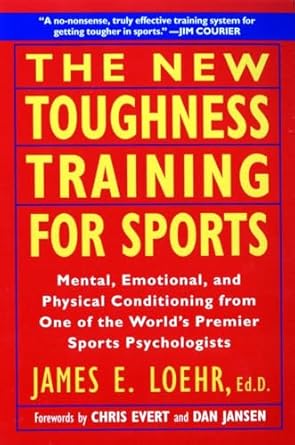Contents
Introduction
Sports psychology examines how thoughts, feelings, and behaviors impact athletic performance, exercise, and physical activity. It can be viewed as the intersection of kinesiology and psychological methods. This means sports psychology explores the link between sports and overall health, and helps athletes use psychological techniques.
In this article, we will explore the mental and emotional factors influencing athletic performance, including techniques to enhance motivation, manage stress, and improve focus. We will also discuss how sports psychology promotes mental health and resilience.
What is Sports Psychology?
Sports psychology studies how mental factors influence athletic performance and how sports and physical activities impact psychological and physical health. It’s not just for professional athletes; anyone looking to improve mental development and physical well-being can benefit. It involve
- Enhancing motivation and focus
- Managing stress and anxiety
- Promoting mental health and resilience
- Assisting with injury recovery
- Improving team dynamics and communication
History of Sports Psychology
| Time Period | Key Developments |
| Early 20th Century | Beginnings of sports psychology with early research by Norman Triplett on social facilitation. |
| 1920s-1930s | Development of psychological theories related to sports, including work by Coleman Griffith, considered a pioneer in the field. |
| 1940s-1950s | The Post-World War II era sees increased interest and research in sports psychology, with contributions from psychologists like Franklin Henry. |
| 1960s-1970s | Expansion of the field with the establishment of sports psychology as a distinct discipline. Key figures include Bruce Ogilvie and Thomas Tutko. |
| 1980s-1990s | Formal recognition and growth, with the founding of the Association for Applied Sport Psychology (AASP) and increased academic programs. |
| 2000s-Present | Continued growth and specialization, with advancements in mental skills training, performance enhancement, and mental health integration in sports. |
Types of Sports Psychologists
- Performance Enhancement Sports Psychology: Focuses on improving athletic performance through mental techniques such as visualization, goal-setting, and concentration training. For example, a sports psychologist might work with a tennis player to use visualization techniques to enhance their serve accuracy and match performance.
- Clinical Sports Psychology: Combines clinical psychology with sports to address mental health issues impacting athletic performance, such as anxiety, depression, and stress. For instance, a sports psychologist might provide therapy to a swimmer struggling with performance anxiety to help them manage their stress and improve their overall well-being.
- Educational Sports Psychology: Works with coaches, parents, and athletes to educate them on mental skills and strategies for improving performance. An example would be a sports psychologist conducting workshops for soccer coaches on how to integrate mental training into their practice routines to enhance players’ focus and resilience.
- Consulting Sports Psychology: Provides tailored advice and strategies to teams, organizations, and individual athletes, offering guidance on team dynamics, leadership, and performance optimization. For example, a sports psychologist might consult with a football team to improve communication and cohesion among players, helping them work together more effectively during games.
- Exercise Psychologists work on the mental side of physical activity, helping people improve their fitness and maintain an active lifestyle. They focus on enhancing motivation, overcoming barriers to exercise, and using physical activity to boost mental well-being. For example, they might help a client develop a personalized workout plan to improve motivation and adherence, while also addressing stress and anxiety through exercise.
Necessary Uses of Sports Psychology
Sports psychology offers various benefits for athletes and teams, focusing on mental strategies to enhance performance. By integrating psychological principles into sports training and competition, it addresses both the mental and emotional aspects of athletic performance.
- Enhancing Athletic Performance: Uses mental techniques like visualization and goal-setting to improve focus and motivation, helping athletes reach their peak performance. This includes refining strategies to overcome mental barriers and boost overall athletic capability.
- Managing Stress and Anxiety: Develops coping strategies for handling competitive pressure and performance anxiety. Helps athletes maintain emotional resilience and manage stress effectively, leading to better performance under pressure.
- Promoting Mental Health: Addresses psychological issues such as depression and anxiety, providing support to improve overall mental well-being. Ensures that mental health is prioritized alongside physical training for a balanced approach to athletic success.
- Improving Team Dynamics: Enhances communication and teamwork within sports teams to foster better collaboration and cohesion. Aims to build a supportive team environment that improves collective performance and morale.
- Facilitating Injury Recovery: Supports athletes through the psychological challenges of injury and rehabilitation. Helps maintain motivation, positive outlook, and effective coping strategies during the recovery process.
What are the benefits of sports psychology?
- Improved Performance: Enhances focus and mental preparation, leading to better athletic outcomes and optimized skill execution. Athletes perform more consistently by refining their mental strategies. Example: A tennis player uses visualization techniques to improve serve accuracy, resulting in more consistent match performance.
- Enhanced Mental Health: Addresses psychological issues such as anxiety and depression, promoting overall mental well-being. This support helps athletes maintain balance and cope with emotional challenges. Example: A swimmer works with a sports psychologist to manage performance anxiety, which improves both her mental health and race results.
- Better Stress Management: Provides techniques to manage competitive pressure and performance anxiety, helping athletes stay composed under stress. Effective stress management improves overall performance and satisfaction. Example: A football player uses deep breathing exercises to stay calm during high-pressure game situations, enhancing his on-field performance.
- Increased Motivation: Boosts intrinsic motivation and goal-setting, encouraging athletes to stay committed and driven. This increased motivation supports sustained effort and progress toward personal and athletic goals. Example: A marathon runner sets specific time goals with the help of a sports psychologist, leading to improved training focus and race results.
- Effective Injury Recovery: Assists athletes in maintaining motivation and a positive outlook during rehabilitation. Addressing psychological challenges associated with recovery speeds up the process and improves overall recovery outcomes. Example: A basketball player uses mental imagery techniques during his rehabilitation to stay motivated and achieve a faster return to play
Theories in Sports Psychology
| Theory | Description |
| Social Learning Theory | Developed by Albert Bandura, this theory posits that people learn behaviors through observation, imitation, and modeling. In sports, it explains how athletes acquire skills and strategies by observing coaches, peers, and role models. It emphasizes the importance of social influences and reinforcement in the learning process. |
| Cognitive-Behavioral Theory | Developed by Aaron Beck and others, this theory focuses on the relationship between thoughts, emotions, and behaviors. In sports, it helps athletes identify and modify negative thoughts and beliefs that may hinder performance, improving mental resilience and focus.. |
| Self-Determination Theory | Developed by Edward Deci and Richard Ryan, this theory emphasizes the role of intrinsic and extrinsic motivation in behavior. It focuses on three basic psychological needs: autonomy, competence, and relatedness. In sports, it is used to enhance athletes’ motivation by addressing these needs and fostering a supportive environment. |
| Goal-Setting Theory | Developed by Edwin Locke, this theory focuses on the impact of setting specific and challenging goals on performance. It suggests that clear, well-defined goals enhance motivation and performance. In sports, it helps athletes set effective goals to improve their performance and achieve desired outcomes. |
| Arousal Theory | Developed by various researchers, this theory examines the relationship between arousal levels and performance. It suggests that performance is optimized at an intermediate level of arousal, with both low and high levels potentially impairing performance. In sports, it helps athletes manage their arousal levels to achieve peak performance. |
| Performance Anxiety Theory | Examines the effects of anxiety on performance and explores strategies to manage anxiety to prevent negative impacts on athletic performance. |
Impact of Sports Psychology
- Improved Performance: Enhances focus and mental preparation, leading to better athletic outcomes and optimized skill execution.
- Enhanced Mental Health: Addresses psychological issues like anxiety and depression, supporting overall mental well-being and balance.
- Better Stress Management: Provides techniques for managing competitive pressure and performance anxiety, helping athletes maintain composure under stress.
- Increased Motivation: Boosts intrinsic motivation and goal-setting, encouraging athletes to stay committed and driven towards their goals.
- Effective Injury Recovery: Supports athletes in maintaining motivation and a positive outlook during rehabilitation, addressing psychological challenges associated with recovery.
What Are Common Sports Psychology Techniques?
- Progressive Relaxation: This technique involves tensing and then relaxing specific muscle groups to reduce anxiety and stress. It helps athletes increase self-confidence, improve concentration, and lower stress levels, ultimately enhancing performance.
- Hypnosis: Used to put individuals in a state of focused attention and increased suggestibility, hypnosis can enhance athletic performance across various sports. Research suggests it helps athletes improve focus and performance in activities such as basketball, golf, and soccer.
- Biofeedback: Involves monitoring physiological responses such as heart rate and muscle tension to help athletes manage stress and improve performance. Research shows that biofeedback, particularly heart rate variability biofeedback, significantly enhances sports performance and reduces stress.
- Cognitive Behavioral Therapy (CBT): Helps athletes identify and alter negative thoughts and behaviors that impact performance. CBT has been shown to reduce performance anxiety and enhance emotional well-being, particularly for athletes recovering from severe injuries or dealing with performance issues.
Recent Trends and Research Findings in Sports psychology
- Technological Integration: Recent advancements in wearable tech and data analytics are providing deeper insights into athletes’ physiological and psychological states. These technologies help optimize training, monitor recovery, and tailor interventions based on real-time data.
- Mental Health Awareness: There is a growing emphasis on recognizing and addressing mental health issues, such as anxiety and depression, among athletes. Sports psychologists are increasingly focusing on providing support for mental well-being as a critical component of overall performance and career longevity.
- Mindfulness and Cognitive Strategies: Mindfulness practices, including meditation and visualization, are being widely adopted to improve focus, reduce stress, and enhance emotional regulation. Research shows that these techniques can significantly benefit athletes’ mental resilience and performance.
- Diversity and Inclusion Initiatives: There is an increasing focus on inclusivity within sports, addressing the needs of athletes from various backgrounds, including different genders, races, and sexual orientations. This trend aims to create a more equitable and supportive environment for all athletes.
- Impact of Social Media: Research into the effects of social media on athletes’ mental health and performance is increasing. Strategies are being developed to help athletes manage their online presence and mitigate negative impacts on self-esteem and performance.
Challenges Faced in Sports psychology
- Stigma and Mental Health: Overcoming Stigma: Athletes may face stigma or reluctance to seek help for mental health issues due to concerns about perceived weakness or career impact. Sports psychologists must work to normalize mental health support and encourage open dialogue.
- Maintaining Confidentiality: Balancing Confidentiality and Team Dynamics: Ensuring the confidentiality of sensitive information while also addressing team issues and communicating with coaches can be challenging. Sports psychologists must navigate these boundaries carefully to protect athletes’ privacy.
- Integrating Psychology with Coaching: Collaboration with Coaches: Effective integration of psychological principles into coaching practices can be difficult. Sports psychologists need to work closely with coaches to align their mental strategies with training methods while respecting the coach’s role and perspectives.
- Cultural Sensitivity: Addressing Diverse Needs: Providing culturally sensitive support and understanding the diverse backgrounds of athletes is crucial. Sports psychologists must adapt their approaches to fit the cultural and individual needs of athletes from various backgrounds.
- Ethical Dilemmas: Navigating Ethical Issues: Sports psychologists may encounter ethical dilemmas, such as conflicts of interest between the athlete’s well-being and team or organizational goals.
Important Books on Sports Psychology

The Sports Psychologist’s Handbook

Mindset: The New Psychology of Success

Applied Sport, Exercise, and Performance Psychology

Sport Psychology: Concepts and Applications

Sports Psychology for Coaches by R. Douglas Dorsch

The New Toughness Training for Sports

Sport Psychology: Theory and Practice

Mental Toughness For Young Athletes
FAQs
How can sports psychology improve athletic performance?
Sports psychology enhances athletic performance by improving focus, boosting motivation, and managing stress. Techniques like visualization and goal-setting help athletes maintain concentration and drive, while stress management strategies and anxiety reduction techniques promote optimal performance under pressure.
How does sports psychology help with motivation?
Sports psychology enhances motivation by using goal-setting to create clear, achievable targets and visualization to build confidence and focus. Techniques such as positive reinforcement and mental rehearsal further encourage athletes to stay committed and driven. These strategies help maintain high levels of motivation and performance consistency.
How does sports psychology address injury recovery?
Sports psychology supports injury recovery by helping athletes maintain a positive mindset and manage the emotional challenges of rehabilitation. Techniques such as cognitive-behavioral therapy (CBT) and visualization are used to boost motivation, set recovery goals, and build resilience. This approach helps athletes stay focused on their recovery process and overcome psychological barriers.
What are the benefits of sports psychology for team dynamics?
Sports psychology improves team dynamics by enhancing communication, building trust, and fostering cohesion among team members. Techniques such as team-building exercises and conflict resolution strategies help create a supportive environment, leading to better collaboration, increased morale, and improved overall team performance.
Conclusion
Sports psychology plays an important role in enhancing athletic performance and overall well-being. By addressing mental and emotional factors, it equips athletes with techniques to improve focus, manage stress, and achieve their peak potential. The integration of various psychological methods, from relaxation techniques to cognitive-behavioral strategies, supports both individual and team success.
Moreover, sports psychology emphasizes the importance of mental health, resilience, and effective recovery strategies. As the field continues to evolve, its contributions remain vital in helping athletes navigate the challenges of competitive sports and achieve their goals.
References
- [1] Davis, J. W., & Giacobbi, P. R. (Eds.). (2011). The sports psychologist’s handbook: A guide for sport-specific performance enhancement. Routledge.
- [2] Dweck, C. S. (2006). Mindset: The new psychology of success. Random House.
- [3] Dorsch, R. D. (2015). Sports psychology for coaches. Routledge.
- [4] Weinberg, R. S., & Gould, D. (2014). Foundations of sport and exercise psychology. Human Kinetics.
- [5] Roberts, G. C., & Treasure, D. C. (Eds.). (2013). Advances in sport and exercise psychology. Routledge.
- [6] Cohn, P. J. (2014). The mental game of golf: A guide to peak performance. Hachette Books.
- [7] Gallwey, W. T. (2000). The inner game of tennis: The classic guide to the mental side of peak performance. Random House.
- [8] Stulberg, B., & Magness, S. (2017). Peak performance: Elevate your game, avoid burnout, and thrive with the new science of success. Rodale Books.
- [9] Loehr, J. E. (1986). The new toughness training for sports: Mental, emotional, and physical conditioning from one of the world’s leading sports psychologists. Plume.
- [10] Jackson, S. A., & Csikszentmihalyi, M. (1999). Flow in sports: The keys to optimal experiences and performances. Human Kinetics.
